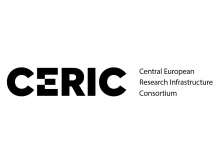
Multi-technique Material Science Service: access to European Analytical Facilities
CERIC - Central European Research Infrastructure Consortium
Service ID:
EP114S1The service offers the beneficiaries of the EIC Pathfinder, Transition, and Accelerator programmes access to a multi-technique approach unique in the European environment: more than 60 different and complementary analytical and synthesis techniques and support laboratories in 11 countries, including synchrotron, neutron, ion beam, and NMR sources. EIC beneficiaries will also benefit from the in-house technical support provided by internationally recognised scientists. The service includes the design of the experiments, data collection, data analysis, and a report outlining the results, observations, and implications. The wide range of possible experiments applies to all areas of materials, biomaterials, and nanotechnology for several sectors, such as energy, pharmaceuticals, food, automotive and aerospace, textiles, and plastics. Among the various experiments, CERIC offers time- and space-resolved studies, ex-situ, in-situ, operando experiments, and more to define the structure, defects, and behaviour of materials down to the nanoscale. The multi-technique materials science service will then provide EIC beneficiaries with state-of-the-art tools and support to obtain highly valuable knowledge and advanced data on a wide range of materials, which is not possible using standard laboratories or a single technique/single-site approach. More information about the service: https://www.ceric-eric.eu/industry/services-for-eic-beneficiaries/.
The cost of the services is a full payment, calculated according to the type of instrument and the full cost of the support requested: €500-6.200 daily (8 hours). The range depends on the instrument used. For irradiation studies a special samples handling is needed with a cost of €120/sample. For some specific techniques the data analysis and report could have a separate cost: €130/ hour or €50-600 /sample depending on the techniques, type of samples and support needed. To determine the exact cost of the service according to the beneficiary's needs, please contact: ilo@ceric-eric.eu . Open access for non-proprietary research is free of charge, provided the results are made publicly available after an established embargo period.
EIC beneficiaries can enroll on a rolling basis, but the facilities will close for routine maintenance breaks according to operational schedules. Services are provided via remote access (mail-in of samples), other modes are also available, depending on the EIC beneficiary’s wishes.
Are you in doubt if this is the right service for you, or do you want to get more information about the service? Get in touch with the EIC Partner providing this service through this query form!
Is this the service you are looking for? If so, you can apply to the service through EIC ACCESS+! Eligible applicants can also get co-funding through the EIC ACCESS+ initiative. Find out more on the project webiste.
Receive up to €60,000 in grants, covering up to 50% of the costs, to access specialised services from the EIC Service Catalogue. Learn more on the EIC ACCESS+ website.

